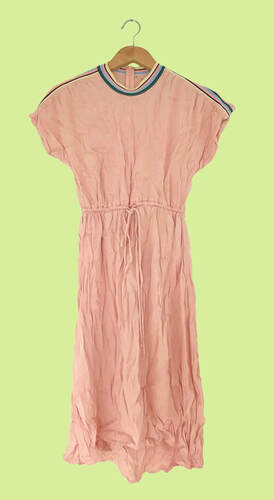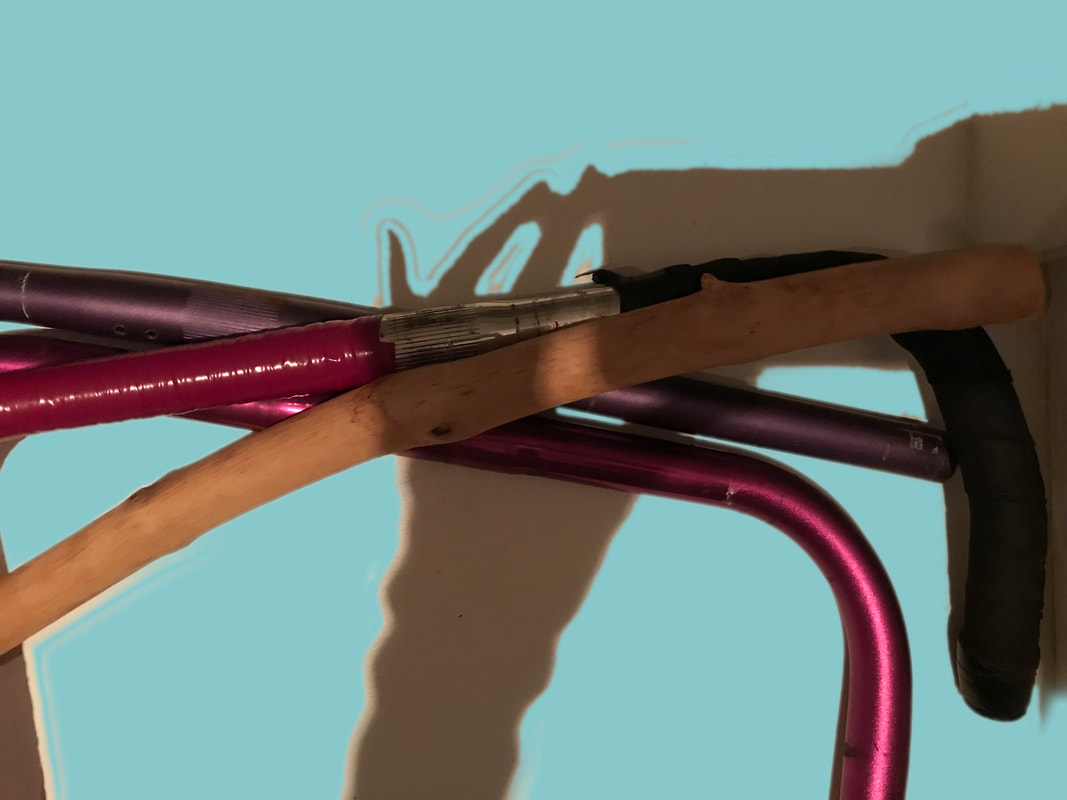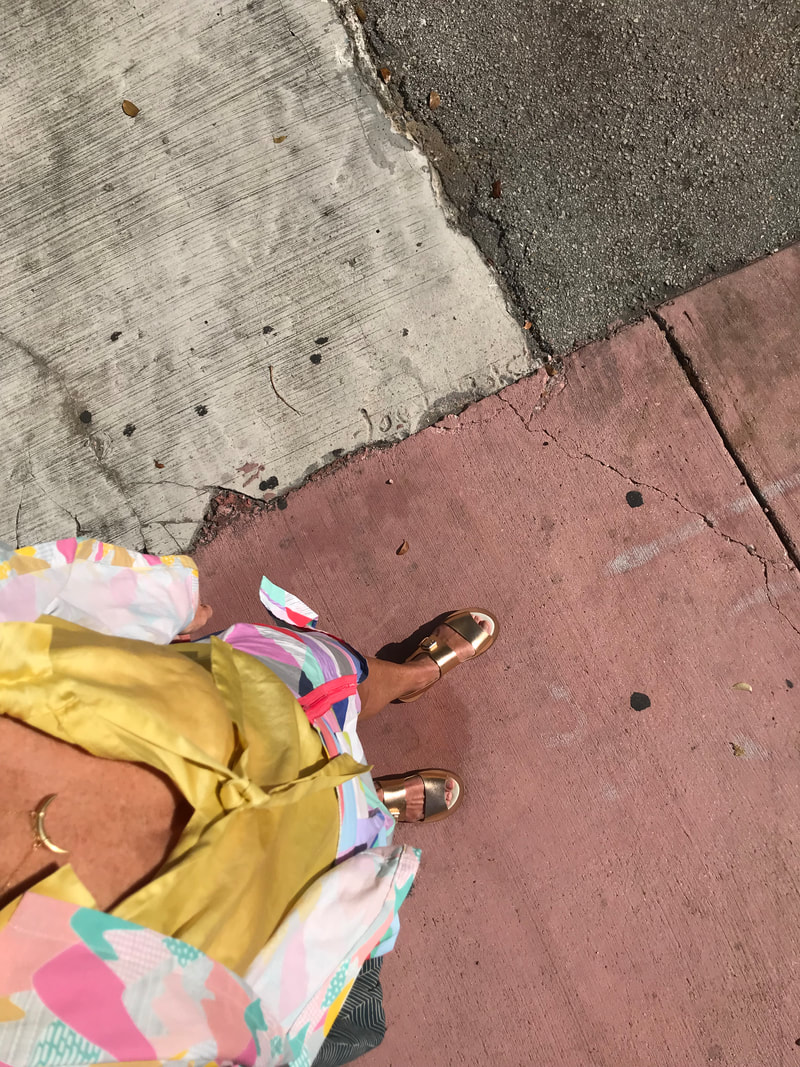|
__________________ it unfolded this way. Tuesday, March 26 @22h, I wrote: I cross a lot of bridges here. On a regular work day I cross sixteen. Some are fixed spans, some are drawbridges. Sometimes I have to wait while a drawbridge opens for someone else to go by just ahead of me in the water below. The bridge goes up and then comes back down. Soon enough it’s my turn to cross. And I do. I could cross fewer bridges if I took a different route; if I took a large thoroughfare, or the highway. The route I take follows several side roads through neighbourhoods. I prefer this because it’s pretty, and it’s mellow. Some might say it’s safe, or safer. I don’t look at it this way: how can we ever claim that we’re safe? I can be sure the route I choose is pretty and mellow, but I can never be sure it will be safe. That’s the way it goes. I know that. So. I take my time. I agree with myself that I’ll cross bridges. A lot of them. I like this. I think it’s a good thing. Good practice. Wednesday, March 27, 20h, I wrote:
So, you know that story I told you yesterday about crossing bridges? About how we can never be certain we're safe? When I said that, I said it with full sincerity, existential and literary as I was about it yesterday. I was, indeed, serious too when I affirmed: I can be sure the route I choose is pretty and mellow, but I can never be sure it will be safe. That’s the way it goes. I know that. This morning I met my remarks head-on (practically) when the notion of safety went out the window (almost literally). This morning I was in a driving incident like I've never endured. I was past rattled. Yet here I am still whole. Tonight I know this: We are here now. This is all we know. So, live it well It struck me enough tonight as I stared at the sky outside when I got home and thought about this day—I really want to tell you this as a for sure here now tonight I can be sure the route I choose is beautiful in some way, and mellow, but I can never be sure it will be safe. That’s the way it goes. I know that. I really know it. May we all.
0 Comments
It probably won’t come as a surprise to you that clothing fascinates me—in fact, it animates me, quite literally. With apparel and adornment, we at once cover and decorate ourselves. Clothing might appear to be merely what we don to conceal and reveal ourselves, yet in exactly that, it’s much more. This covering offers quiet ways to resist what’s around us while we resource ourselves at the same time. When well considered, it’s inoffensive to others, yet affirmative, and even preservative, of self. I’ve long made and used my clothing and accoutrements as protection, creating invisible and incantatory cloaks around me. My shields are naked to the eye. Today I’m doing it. For reasons I won't get into, today I have to wear my employer lapel pin—the first time in my life I’ve ever branded myself like this, and something to which I'm profoundly opposed. So, I’ve also surrounded myself with my private power. They’ll never know. But I do.
 This is the kind of stuff you see in films. Indies. Often set in L.A. With millennials. You know. And when you see it, you think, Nah, it’s the movies. That shit doesn’t really happen. That’s magic. And this is real life. Well. I’m here to tell you. Yes. It does. This stuff actually really does happen. In fact, it just happened. Today. To me. I went to Good Will a little earlier. A pit stop on my way home. A distraction, really. Something softer to follow the epic journeys that are the highway systems I travel for work when I can’t take sideroads the whole way. When I entered the store I realized they’d changed the whole layout since my last visit, and I wasn’t in the mood for that big a change. Not on this day. On top of having to speed along the turmoil of all the fast traffic, I’ve been out of sorts for reasons I can’t quite explain. I'm still trying to work it out. So I wasn’t in the mood for change. As I wandered the first aisle to the right of the entrance, now women’s sleeveless tops where men’s short sleeved shirts used to be, I was reminded of when I used to joke with my foster mom about her dinner menus written out on a tiny piece of paper, always a reused scrap of paper, that she’d place on the kitchen island in the house in the valley where she moved to so much later in life. Decades before, in summers, us kids used to roam that valley in packs, picking blueberries by the bucket for days and days. Now, decades later, as she made dinner, Mom would consult that piece of paper where she’d written out the night’s dinner items in their cooking order: potatoes, green beans, buns, etc. Teasing, I would move her piece of paper, holding her eyes with a smile, Hey Mom, I’d say, who moved my cheese, quoting the title of a book that deals with change. I knew she knew I was right, but she couldn't help herself--she wanted that piece of paper back in its place. I got it then, and I still do. So, in Good Will earlier today, I coped with change, remembering Mom. I don’t like carrying things around on hangers, it’s not good for my neck. So I take items off their hangers to drape the garments over my shoulders, and through the straps of the bag that I loop onto my back. Lately, it’s been pretty paltry pickings at my Good Will. I’ve often with left with nothing. But that’s the way it goes. I know that. That’s the deal there. Though, really, that’s the deal anywhere. Everywhere. Sometimes you leave with nothing. I made my way through the new aisles. Not liking it. I told myself it’s change. Only change. I’ll learn the layout. I’ll know it by the time Don gets here in May. He wants to go to thrift stores. The whole layout here will be new to him, not a change, but kind of. It’s all ok. I’ll find my way. I kept moving through the aisles, and I found a few things to stick through my bag straps: a striped mariner top (like I need another), a dress I think would work if I wear it backwards (which I have on now and does work well worn backwards). Then I came upon this long pink sporty thing. A definite find. I loved it. The dress was too long for my taste, but I’d cut it and hem it shorter. I pulled it through my bag strap along with the mariner top and the dress that would work if I wear it backwards. At the back of the store in home goods, I found four little wooden frames, exactly like a bunch I’ve had forever and that I made into an installation of multiples using eye-hooks and jump hoops to present the underwater tale of a kayaking trip I did in Desolation Sound at least twelve years ago. I’ll make another one, I thought, probably for the piece I'm working on right now about trees. I carried the frames in one hand. A little further on, when I finally found the newly located pants aisle, I scored three distinct possibilities, including a pair with a 60s vibe to their style. The pants were heavy so I carried them all in my arm, in the crook of my elbow up from the four wooden frames. I found another mariner top, in the young fashion section, which I grabbed against all better judgement. When do I wear a turtleneck here? Eventually my interest completely waned, and I went to wait at the dressing rooms. Once assigned to a changing room, I organized everything by category on the orange plastic chair in the corner: pants over the backrest; tops on the seat; dresses also on the backrest, off to one side. That’s when I discovered that I had only one dress, the one I’d wear backwards. The excellent dress that I would cut shorter and hem was missing. This trip to the Good Will already a half-hearted one, this little loss knocked all the wind out of my sails. I tried things on. But I really didn’t care. I thought about dumping everything, about foregoing the long wait line for the till with my half-hearted finds. But, I remembered the four frames. I really wanted to make something about trees with the four frames. I already had tree images ready--noticing them as I whizzed by in my car, I'd been keeping a list by jotting down the location and a quick sketch to remember for later. I've returned to each one early on quiet mornings and have pictures of them. The series is called, provisionally anyway, Learning from their Limbs. I left the dressing room and started hunting the floor for the great dress that had slipped away. Then I saw it. Someone had picked it up. It was draped over the end of a long rack. Before I could get to it, a woman began looking at it. She had a stroller and a little girl who looked about two years old. The woman was in deep concentration, focussed and fiddling. I lurked a few aisles away, watching and waiting, hoping she’d reject the find. She continued handling the dress, engrossed in a way you don’t often see in a Good Will store. I began to feel a little desperate--not really desperate, not truly; it felt more anxious, more despairing, a mix of urgent and wretched. I’d chafed my way through the day to that point, and I was ready to be lifted from my slump by this pretty dress. Then I’d lost it. I’d dropped it, unaware. And I was still struck numb. The woman finally slipped the dress through the handle of the stroller. She was taking it. I was forlorn. I headed to the cashiers, even though I didn’t feel like doing anything but crawl into bed. The dress I’d wear backwards and the 60s pants weren’t really that enticing, not enough for a wait in line, but the four little wooden frames are hard to come by and I was prepared wait for them. The line wasn’t too long, which is pretty unusual. In fact, the whole store was uncommonly quiet, a small mercy I appreciated. I was so miserable that I didn’t even go to the effort of getting out my earbuds and queuing up a playlist to listen to while I waited. So I waited as is. Soon I noticed the woman with the stroller and child coming up the cordoned maze that herds shoppers toward the cashiers in what is supposed to be one line. The dress was still hanging over the stroller handle. She was dawdling, but she was technically next behind me, even though she was about ten feet away. I continued waiting. I looked at the woman. I looked at the dress, still incredulous. I looked at her child, a little girl who seemed content and playful. I began to wonder if I should plead my case to the woman. I waited. I waited. I decided to try. And I walked those ten feet. Excuse me, I said to her. I’m going to ask you a hard question. And you can totally say no. That dress is yours, fair and square. Then I went on to explain my saga with the dress. She had an open friendly face. But she didn’t say anything and I wondered if I’d just spoken a bunch of English to someone who speaks another language. Then she replied, lifting up all that long drapey pink from the stroller handle as she said to me, there are two. I looked at her hands and saw there was something long and pink in each one. What?, I asked, and she repeated it: there are two dresses. There was one inside the other. They’re the same dress, but one’s a size S and one’s a XS. They don’t have the same price even though they’re the same dress. She went on to explain the different pricing and her size preference, and that she wanted to show both dresses to the cashier to try to get the lower price on the size she wanted, which was the one priced higher, and she said that the other was mine. I understood all the words she was stringing together. I understood what she was saying. I was just having a hard time taking it in. Earlier in the day on the phone with a friend who’s feeling frustrated about a project she’s developing, I listened and told her that sometimes there’s enough for everyone. That’s what I said: sometimes there’s enough for everyone. As I was telling my friend this on the phone, I was slightly uncomfortable with my message, all too aware of how flakey and privileged it sounded. Sometimes there’s enough for everyone. How new-agey and manifesty it sounded. Yet there I was, mere hours later, in the Good Will, confronted with exactly that. Then it occurred to me: What if I hadn’t asked? That too was hard to take in. Ask outrageous questions, I thought. Sometimes there’s enough for everyone. Part I
I took the morning off work yesterday to get my car serviced. I like to go to Mickey’s, a one-man operation owned by Keith since 1958. Aunt Nancy recommended him to me when I moved here two and half years ago and had to buy a car. Keith was Aunt Nancy and Uncle Carl’s mechanic since he’d opened for business. I prefer giving my money to small owner-operated joints and so have clocked more miles than I should without an oil change because Keith works Monday-Friday, just like I do. So, yesterday morning I made the time. Keith is seventy-five and wants to retire next year. I asked him what he’ll do then and he said he’ll go work for someone else. Doesn’t sound much like retirement, I said. He just laughed, but I’m sure it’s not that funny. I told him I’d follow him. How’s business? I asked. Slow, Keith told me. Not too funny either, I thought to myself. Then Keith told me he’s being sued for not having designated handicap parking. I looked at the vast flat empty expanse of asphalt that wraps around Keith’s corner garage. The set of bright lines around a handicap symbol in fresh paint at the edge of the front lot seems operatic in contrast to the fading paint peeling off Keith’s garage facade. I wonder how much that cost to slap on. Some guy’s been going up and down the street looking for businesses without handicap parking, Keith tells me, and now he’s suing all of us, he adds. We both swear – using different words – and then excuse ourselves to each other. Nothing about Keith’s story shocks me. I’ve lived in Miami long enough now to know to expect anything, especially graft. Just as Keith was referred to me by my aunt, anyone else I see for assistance or service of any kind has to be vouched for by someone I know. From doctors to haircuts, realtors to tattoos, if I don’t know someone, personally, who can vouch for someone else, I won’t go to them for anything. I learned this the hard way. The way I see it now, people here are either on the make, or on the take. Those in between relentlessly underwhelm me with their indolence, their incompetence, or both. Of course, like everything, there are exceptions, and they’re the ones who’ve been vouched for. Like Keith. While my car was on the hoist, Keith popped off one of the front tires, checked my brake pad and showed it to me. Then he went into the back and got another one to show me the whole contraption, explaining what it would look like if it were worn down and needed replacing. He checked my tire treads and explained what to look out for. Once the car was back down on the ground, he lifted the hood to check all the fluids and topped up those that needed it. He showed me the fan belt, the A/C hose and valve, the radiator, and he talked about coolant; he explained why synthetic oil is better, and he told me it’s ok to buy 87-octane gasoline rather than the more expensive stuff. He told me about the gas station he uses and the point system they have there that eventually saves him $2 on a tank of gas. I don’t like owning a car and having to keep up with the maintenance it requires, so the time Keith was giving me was enormously appreciated, and relieving. For all that, he charged me $35. He released the hoists that were cinched under my car and I climbed in to leave. Standing in front of the vehicle, Keith motioned to me how to turn my wheels to back out, rotating his hand to imitate the steering wheel. I’m sure there are women would take offence at this. I didn’t. Unfazed, I just smiled. I may hate owning a car and looking after one, but I’m a really good driver and very comfortable behind the wheel. I can parallel park like nobody’s business. On South Beach once, where parking is tight and hard to come by, I zipped into a tiny spot lickety-split. When I stepped out of the car and locked the doors to leave, a man across the street started applauding. I took a deep bow. I was wearing a tiny hot pink summer dress and platform flip flops. Part II I pulled out of Keith’s lot and headed south on NW 7th Ave, a huge boulevard I prefer to the ugly turbulence of the I-95 right beside it. Where Little Haiti meets Liberty City, I was stopped at a red light, windows down, music blaring. I was listening to a playlist I made and called The Best Of Van Morrison According to Me. Staring up at the sky out my window, awash in Van’s wise wails, I thought I heard something else, and I looked to my right. In the lane beside me was a gleaming bronze truck, boxy and pristine, vintage. The driver was wearing massive aviator sunglasses; he was middle-aged and muscular, and he had super black skin that his black t-shirt hugged tight. I realized he was talking to me. Pardon?, I said. He was rotating his hand slowly, a lot like Keith had, his index finger extended toward my open window, slowly looping round and round. What do you know about the blues?, he asked me. Too much, I told him. You?, I asked. Same, he said, and we both start laughing really hard. His wide smile revealed a full set of gold grillz that flashed in the sun. I don’t know how we could have appeared more different. I was dressed head-to-toe in white, and, as my friend Juan has observed, I might be the whitest woman in Miami – my blue eyes and my white-blond hair scream Nordic like nothing else. And there I was listening to some old white Irish guy singing the blues, loud. And here we both were, this white-clad white girl and this dark shiny black man, laughing together about our blues. The light changed and we wished each other a good day. He pulled away fast, and in the blast of metallic shine receding down the long road in front of me I saw the small oasis of his blue antique plate. The perfect touch, I thought to myself. Part III I got to work just in time for my meeting with Yucef. Someday I want Yucef to explain to me, chronologically, everywhere he’s lived, and what he was doing in each place. Yucef is Venezuelan but he hasn’t lived there in decades. He’s a digital artist and his work ranges from sublimely connective and poetic to radically political and very possibly an endangerment to his life. Yucef and I see eye to eye. He’s one of those people we all wish for in our work life, not just a colleague and a peer, but a kindred soul. At the end of our meeting, Yucef noticed that he’d received a phone call from an unknown number. He showed me his phone: the caller ID said No Se. Yucef hit call-back, not something I would have done. Here in the wilds of the unregulated marketplace all manner of unwanted solicitation runs rampant, all these corporations-are-people throwing around their rights with the swagger of the class brat and the bully, without regard for responsibilities that might accrue to them in return for all those rights to which they are forever laying claim. I never confirm reception of a call from any number I don’t recognize, never; in fact I block every one of them. It’s R_ _ _, Yucef says. I know R_ _ _ _ too. He’s also an artist. Yucef puts the call on speaker and we all chat for a while. Then Yucef and R_ _ _ _ talk together in Spanish and I understand nothing. When they finish the call, Yucef tells me that he thinks R_ _ _ _ is in Cuba. What makes you think that?, I ask. Because he wouldn’t say where he is and the Havana Biennial is on right now and it’s perfect for his work, Yucef explained. I know R_ _ _ _ is distrustful of the state and he also protects his privacy carefully. I also know that Cuba is out of bounds for Americans and there’s a history in this county of government agencies monitoring private citizens’ telecommunications. So, somewhere sixty minutes away from here by air and a world away is R_ _ _ _, non grata. Epilogue All cities have their particular tinctures, textures and tones that distinguish one place from another in ways that are inimitable. Yesterday morning was quintessential Miami. And it all happened before noon. Behind the ritual indeed. Welcome to Miami. |
authorzoe welch Categories
All
November 2022
|




 RSS Feed
RSS Feed